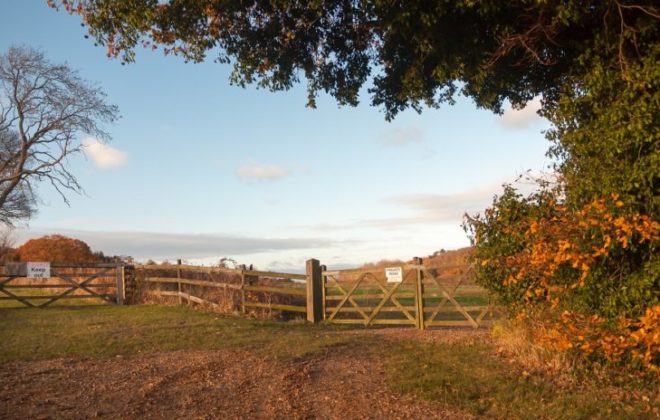Claiming Compensation For A Cutting Or Slicing Injury Caused By An Accident At Work
Sharing is caring!
According to statistics published by the Health and Safety Executive, there were 441,000 non-fatal injuries sustained by employees at work in Great Britain between 2020 and 2021. Of these, over 40,000 were caused by employees who had come into contact with machinery, equipment or tools which had either entrapped them or cut or sliced them.
As personal injury and accident at work specialists, we handle a lot of cases on behalf of employees who have suffered cuts, lacerations, severed arteries and digit or limb loss caused by cutting or slicing accidents, and in particular employees who have come into contact with sharp blades while working in agriculture, horticulture, construction, engineering, hospitality, supermarkets and food manufacturing, including meat and cheese processing.
In this blog, written by Abid Hussain and Anna Rushton in our accidents at work team, we outline the sorts of injuries that we deal with and explain how we can help you to claim compensation where the incident in which you were hurt was not your fault.
Types of cutting and slicing injuries that we deal with
We have experience in dealing with a range of cutting and slicing injuries, from the very minor to the extremely severe and possibly life changing. This includes handling claims for:
- A cut finger, thumb, hand, wrist or arm;
- Tendon injuries;
- Muscle and tissue damage;
- Severed artery injuries; and
- Finger, thumb, hand or arm amputations.
We have particular expertise in dealing with serious claims where a cutting or slicing injury has resulted in extensive and obvious scarring, a loss of sensation, a reduction in range of movement, the onset of carpal tunnel syndrome and also digital amputation or limb loss.
Who we make claims against
In most accident at work cases, the person we will pursue for any compensation that you are owed will be your employer who, in turn, will look to their insurer to deal with things.
A claim against your employer may be justified where your injury was caused by:
- Defective machinery, equipment or tools;
- A failure to carry out regular condition and safety inspections;
- A failure to attend to any required maintenance or repairs;
- A lack of employee training;
- The absence of personal protective equipment (PPE); or
- Negligent or reckless behaviour by a fellow employee.
In some cases, it may also be appropriate to pursue the manufacturer or supplier of any machinery or equipment that is found to be defective, and also perhaps any external maintenance company that your employer uses to ensure that their premises remain safe.
Claims process
To find out whether a claim may be possible, we offer a free initial assessment which can either by conducted face to face with one of our expert lawyers at our offices in Crewe or Hanley, or, if you prefer initially, over the telephone or via zoom. Where we believe that a claim can be made then we can usually act for you on a no win, no fee basis, which means that you can proceed to make a claim without having to pay any upfront costs and usually with no liability to pay us anything unless and until your claim is successfully concluded.
Once we have accepted instructions, we will take a detailed statement from you to find out what happened and then begin to collect in relevant evidence, including statements from witnesses, any record of your injury noted in your employer’s accident book, details of any similar incidents at your employer’s premises or within their business and, where relevant, any findings in relation to the accident made by the Health and Safety Executive.
We will also, of course, notify your employer that we have been instructed and urge them and their insurer to engage with us at an early stage to try to resolve your claim amicably. In most cases, employers are keen to do this and will work cooperatively with us to try to reach an acceptable financial settlement and to provide you with immediate funding to help cover the cost of any treatment or rehabilitation that you require, and to top up your income where your injury means that you are experiencing a loss of earnings because you cannot currently work or cannot do any overtime or extra shifts.
Compensation levels
The amount of compensation you are eligible to receive will depend on the nature and severity of your injuries and on a range of other factors, including your age, whether you will be left with a permanent disability, if and when you might be able to return to work, whether you will require ongoing treatment or care, the impact your injuries have had on your mental wellbeing and general quality of life, and whether you now need mobility aids or home or vehicle adaptions to enable you to live independently.
Where the injury you have suffered is only very minor and unlikely to cause you any long-term problems, then your compensation claim may be worth between a few hundred and a few thousand pounds. However, where your injury is more severe and will have lasting consequences you could be looking at a payout that runs into tens of thousands of pounds.
Need more information?
To find out more, call us today on 0800 195 6412 and ask to speak to a member of our accident at work or serious injury team. We can arrange a fast appointment for you to meet with or to talk to one of our expert advisors, and where English is not your first language we can also offer a free interpretation service in Polish, Tamil, Sinhala or Malayalam.
Categories
Reviews
About Us
- We have a commitment to you, ensuring that we’re making a difference to people’s lives
- We put real value on individuals and our local communities
- We believe in open and honest advice, helping you to make life better.
Testimonials
What more can i say?…
Professional and compassionate
Nothing was too much trouble for Anna and her colleagues as they strived to get the best result for me.
I’m delighted to say that the case was resolved to my satisfaction.
fantastic service
The service I received from Mr Hussain and the colleagues wasRead more “fantastic service”
pleasant experience
The overall mark out of ten for my experience has got to be 11. Thank you to Mr Abid Hussain for making an unpleasant experienceRead more “pleasant experience”
excellent communication
Satisfactory
Recommend to family and friends
excellent service
I received excellent service. Mr Hussain explained everything in detail and I never had to worry about a thing beyond signing a few papers. ThankRead more “excellent service”
pleased with the service
I have been very pleased with the service you have gave me and thank you very much for all your hardRead more “pleased with the service”
Thorough and to the point
I felt reassured with what you were doing for me. It was thorough and to theRead more “Thorough and to the point”
Helpful and good team work
Just like to say thank you and it’s been so helpful. Very good teamRead more “Helpful and good team work”
well informed advice
I received well informed advice and was updated throughout the process. I was dealt with very courteously by Mr Hussain and hisRead more “well informed advice”
Good service
I have received a very good service from Mr Hussain and was very pleased with the outcome. I was always able to see someone to help ifRead more “Good service”
Fantastic
Fantastic friendly and very helpful professional advice, at any stage of process. Highly recommend anyone who needsRead more “Fantastic”
Very Friendly
I found staff to be very welcoming and friendly. Service I received was very informative andRead more “Very Friendly”
Thank you for help
best interests
It was excellent from start to finish. I felt I was always informed and that my best interests were atRead more “best interests”
Great
Great communication, quick response to any queries. A pleasure to do business with you. HighlyRead more “Great”
Thank you
A complete pleasure
Great communication
Happy with everything
Recommended services
My case was managed by Anna Rushton. Since winning my case I have recommended Anna’s services to a friend. I found her guidance and assistance second toRead more “Recommended services”
Sound advice
Reliable and good service
Efficient and professional
I would like to thank Anna Rushton for her efficiency and professional services as well as for her friendlyRead more “Efficient and professional”





